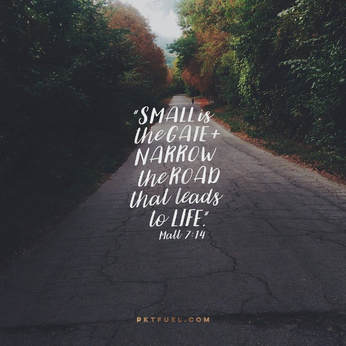 If you are an American Christian in 2018 there is a sad likelihood that it has been some time since you paused to savor anything. And that’s not just a shame: it’s shameful. If God is the giver of every good and perfect gift, we are all too often the ingrateful and distracted recipients of those gifts. We might prefer that the sandwich taste good, but we also insist on eating it in so hurried and distracted a fashion that we scarcely taste it. The Christian Discipline of Savoring This is a problem for at least three reasons:
2. Sensation Overload Second, God wants us to be sensitive to stimuli. It is Satan who desires that we be made numb and indifferent. And what he has accomplished through idolatry he is just as pleased to do through devices and a relentless pacing of life. Our frenetic lives and our blunted senses serve Satan’s purposes better than those of the God who created us. 3. Experiencing Grace in the Everyday Third, the good gifts of God are means of grace to those who receive them. The delicate reach of a twig, the late day sunlight completing its journey in rosy triumph on the rough trunk of a white pine, the way the neighbor’s cat stretches on its morning stoop in what might be worship. The way cool water perfectly satisfies the parched tongue, the way lettuce tastes better for having been crunched between one’s teeth, the pleasure we might take in bathing and being clean. These are all things that have been salvaged from the shipwreck of Eden and as such are means of grace. They make the desert island on which Adam’s sons and Eve’s daughters washed up more survivable. But they also point us away from the desert island to the Promised Land across the waters and to the One who will, in time, bring us there. 5 Ways to Stop and Savor So if we agree that we would be better disciples and happier people if we savored more what must we do to resist the tide of our culture?
2 Comments
 I’m sure glad I’m not a gatekeeper. That’s a crummy job. Whether you are deciding who gets to come into our country or who gets to eat at your restaurant, there will be lots of dilemmas and lots of penalties for getting things wrong and some penalties even for getting things right. Being a gatekeeper is an exhausting business, and rife with second-guessing. The Gate of Salvation Now as a pastor I do have to be alert for false teachers, it’s true. And not just anyone can be in leadership. But the gate that I am most concerned with, the gate of salvation, is self-enforcing. It is of specific and unbudging dimensions. I can’t change that gate to suit anyone who finds it too narrow, nor can I block the entrance to that gate for anyone narrowed enough by desperation to find it well suited. Anyone might enter by that gate, but no one gets to enter on any terms but those of the gate. And so, I am not a gatekeeper, but there is a real sense in which the gate keeps me. The church I pastor serves as both porch and foyer for that beautiful door that leads to the life of salvation. I can not lead the church any distance from that door and have it remain a church. And in this church I lead there are those who voted for Trump enthusiastically and those who revile him no less now than they did during the election. There are those who would be welcome to eat at the Red Hen and those who would rather protest outside it. That’s a good thing. I am determined that this virus of gatekeeping not infect our church, that our boasting be about the Host and the menu, rather than the guest list and the likemindedness of those on it. The Crisis of Grace There has been a lot of recent talk about the lack of civility and respect in our culture. And it is evident that both are lacking. But the current crisis is not a crisis of civility or respect. It is a crisis of grace. We are dismayed by the effect of living in a graceless culture, one in which everyone gets what he deserves and no one is allowed anything that he doesn’t deserve. A graceless culture has some appeal to those who are convinced that they themselves are deserving. But those of us who’ve been steeped in the gospel know that our hope for this world and the one to come hinges on grace, on us getting exactly what we never deserved. And so we react to the graceless culture with great sorrow, and we insist that even if the angry gods of the hour squeeze grace out of every other public place in our culture, that grace will nonetheless be the lovely condition of the church. Being the objects of grace ourselves, we extend that grace to our co-worshipers with gospel liberality. Gate Conditions But this condition that distinguishes us from so much of our culture is fragile and if we are determined to bring lots of people to the gate without being gatekeepers there are some things we should keep in mind:
|
Furnace Brook Wesleyan Church Blog
|


 RSS Feed
RSS Feed